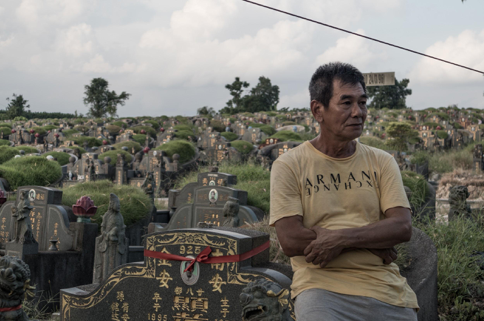
Mr Yow Moon Lam, 63, or also known as “Shui Gui”, has been a gravedigger for 50 years. He used to dig frequently at the cemetery in Bishan and could easily take home $20,000 a month. Now, he’s more active at the Choa Chu Kang Cemetery, earning about $100 per dig, an average of $9,000 a month.
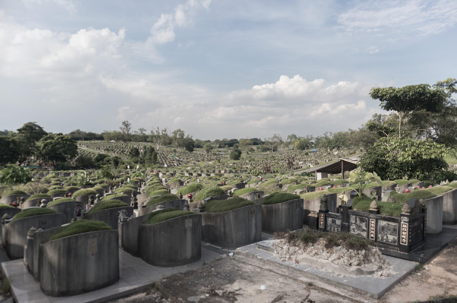
Exhumation of graves is common in land-scarce Singapore as the lease for burial plots expire after 15 years under the New Burial Policy of 1998. The government announced last year that more than 80,000 graves at the Choa Chu Kang Cemetery will have to give way for the expansion of Tengah Air Base in the years ahead.
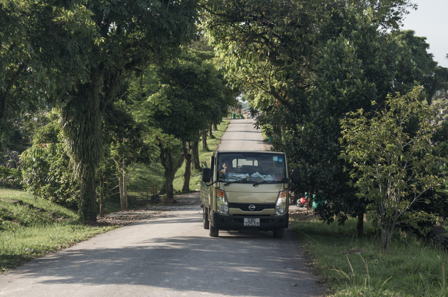
Mr Yow grew up in Bishan, where a 155ha Chinese cemetery called Peck San Theng used to stand. His father dug graves once in a while to earn some extra cash, so he’s no stranger to the job.
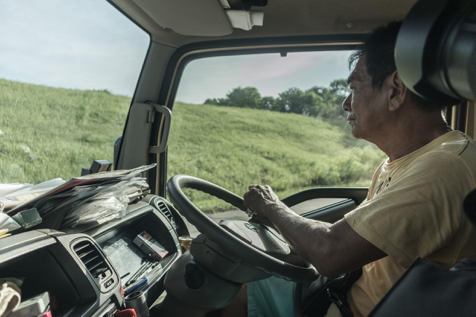
“I never thought of switching career,” Mr Yow told The UrbanWire. “I regard what I do as a good deed for the dead.”
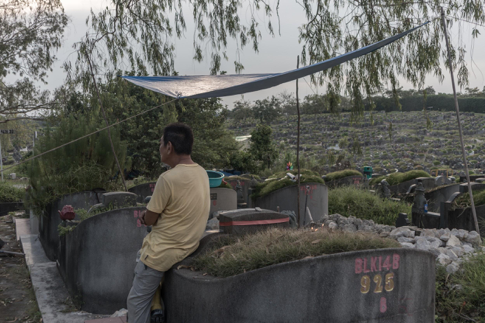
But he knew the job is not for everyone. “You need to be daring and have the guts to do a job like that.”
“I will come across bodies that are not decomposed. But that doesn’t scare me.”
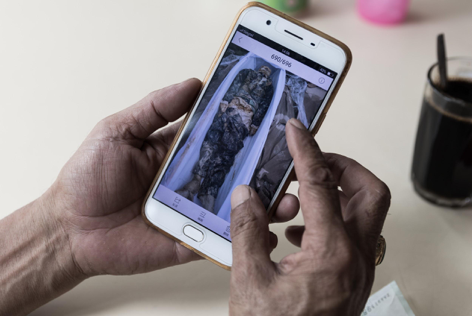
Mr Yow used to dig by himself when he was in his 20s. Now, he has young workers helping him with the hard physical labour.
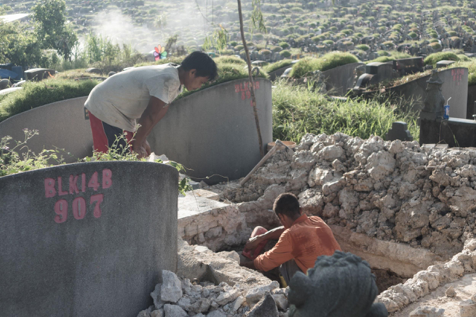
He can be at work at any time of the day.
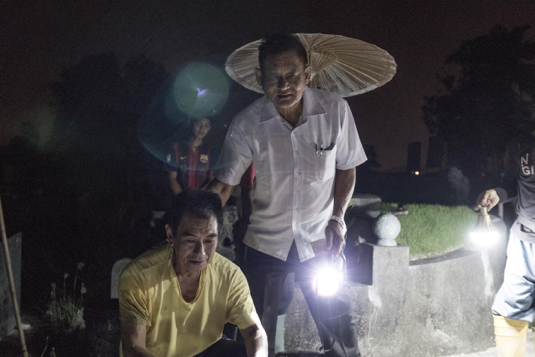
Depending on the design of the tombstone, the tearing down may take between 2 to 10 hours before he digging can proceed.
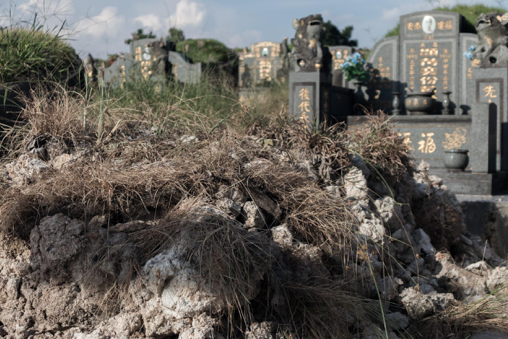
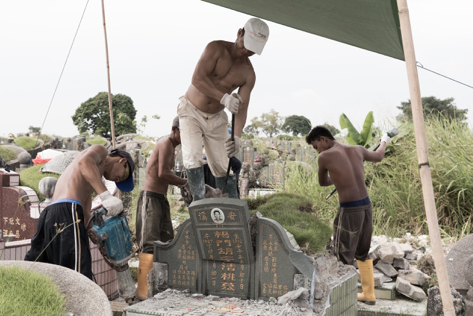
Candles are lit as a sign of respect.
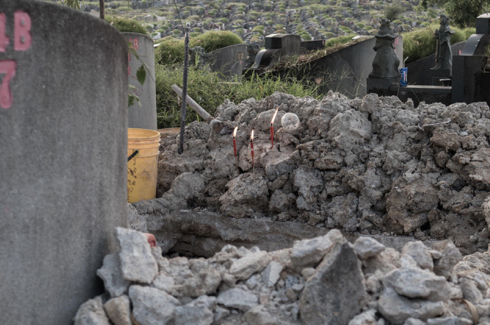
Mr Yow then waits for the family of the deceased to arrive before he proceeds to bag the bones into a white plastic bag. The digging process takes about 30 minutes.
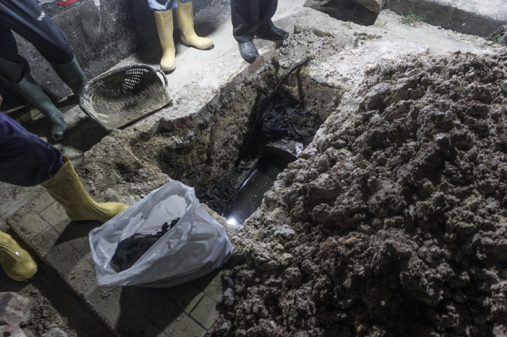
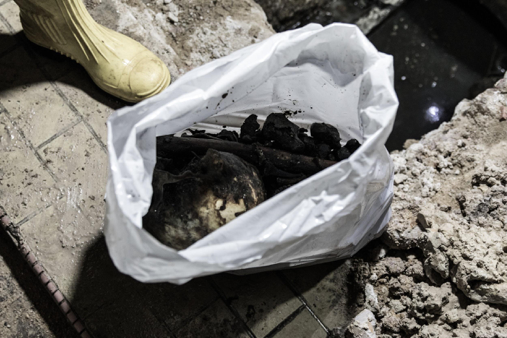
Mr Yow’s work is demanding but he’s been able to provide well for his family. In fact, his son started developing a taste for branded goods when he was 16 years old.
That’s when Mr Yow decided to show his son how he earned his keep.
“I wanted him to understand how hard the money he used was earned […] ever since then, he never asked me for money to buy branded goods.”
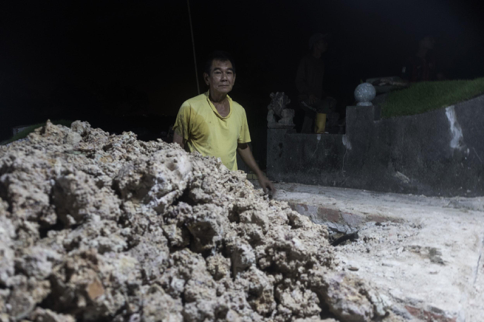
Mr Yow’s son is now working in China. He is not keen to follow in his father’s footsteps.
But his own son, 9-year-old Jau Yao Xiang, feels otherwise.
Yao Xiang said: “I always follow [Mr Yow] to his digs during the weekends. When I grow up, I want to be a gravedigger like him too.”
In fact, this gutsy 9-year-old has already tried collecting bones, the grandfather said.
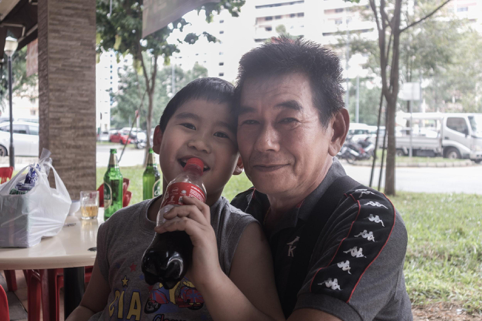
Mr Yow is not planning to call quits just yet.
“In another 3 to 5 years, most of the digging will be complete,” the 63-year-old said. “But I will continue working until I cannot physically do it anymore.”
